Helping a Child with ADHD Focus While Studying
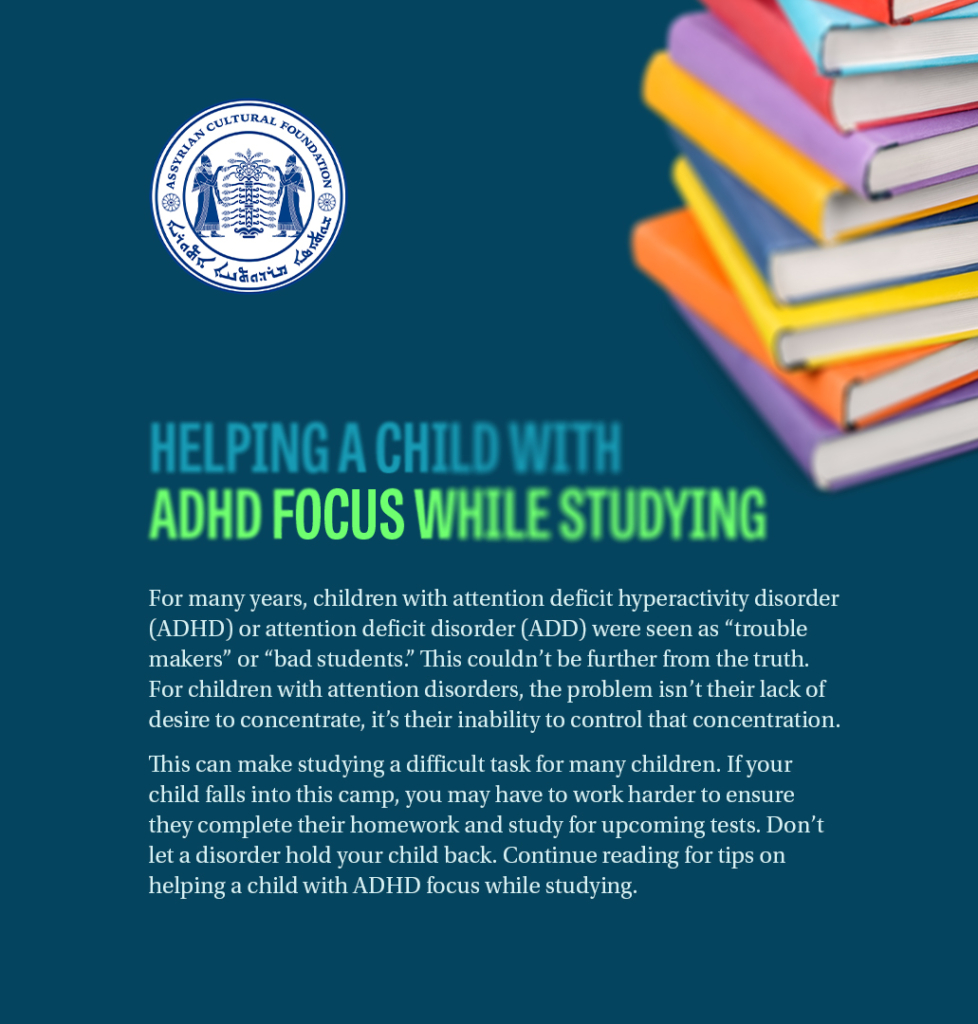
Helping a Child with ADHD Focus While Studying
For many years, children with attention deficit hyperactivity disorder (ADHD) or attention deficit disorder (ADD) were seen as “trouble makers” or “bad students.” This couldn’t be further from the truth. For children with attention disorders, the problem isn’t their lack of desire to concentrate, it’s their inability to control that concentration.
This can make studying a difficult task for many children. If your child falls into this camp, you may have to work harder to ensure they complete their homework and study for upcoming tests. Don’t let a disorder hold your child back. Continue reading for tips on helping a child with ADHD focus while studying.
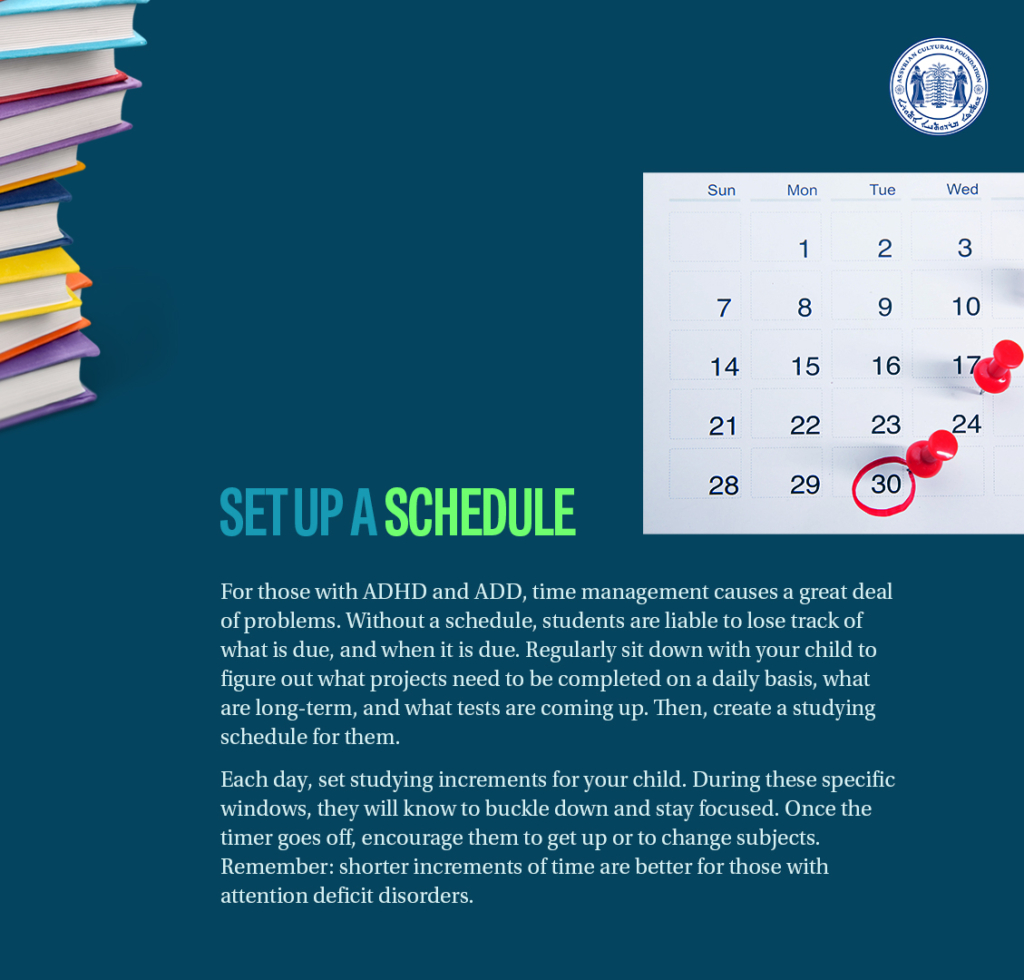
Set up a schedule
For those with ADHD and ADD, time management causes a great deal of problems. Without a schedule, students are liable to lose track of what is due, and when it is due. Regularly sit down with your child to figure out what projects need to be completed on a daily basis, what are long-term, and what tests are coming up. Then, create a studying schedule for them.
Each day, set studying increments for your child. During these specific windows, they will know to buckle down and stay focused. Once the timer goes off, encourage them to get up or to change subjects. Remember: shorter increments of time are better for those with attention deficit disorders.
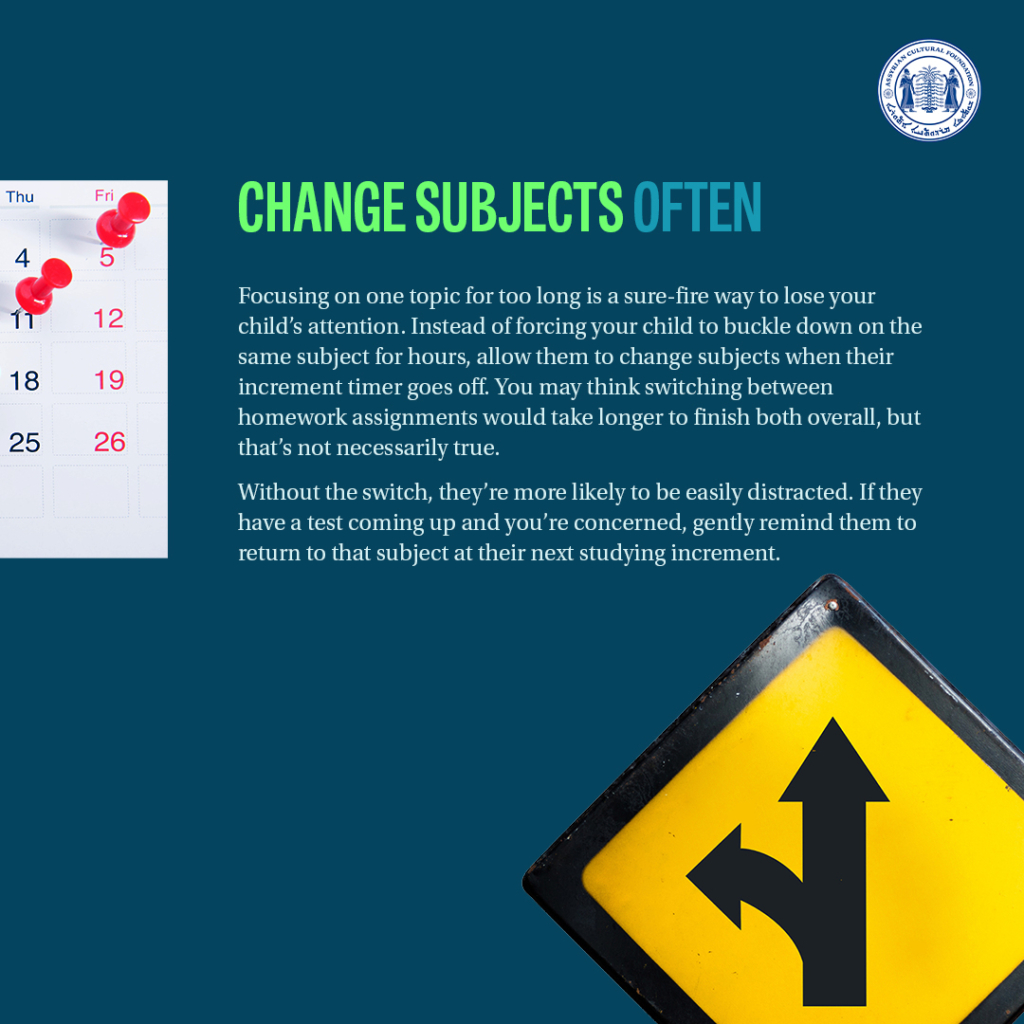
Change subjects often
Focusing on one topic for too long is a sure-fire way to lose your child’s attention. Instead of forcing your child to buckle down on the same subject for hours, allow them to change subjects when their increment timer goes off. You may think switching between homework assignments would take longer to finish both overall, but that’s not necessarily true.
Without the switch, they’re more likely to be easily distracted. If they have a test coming up and you’re concerned, gently remind them to return to that subject at their next studying increment.
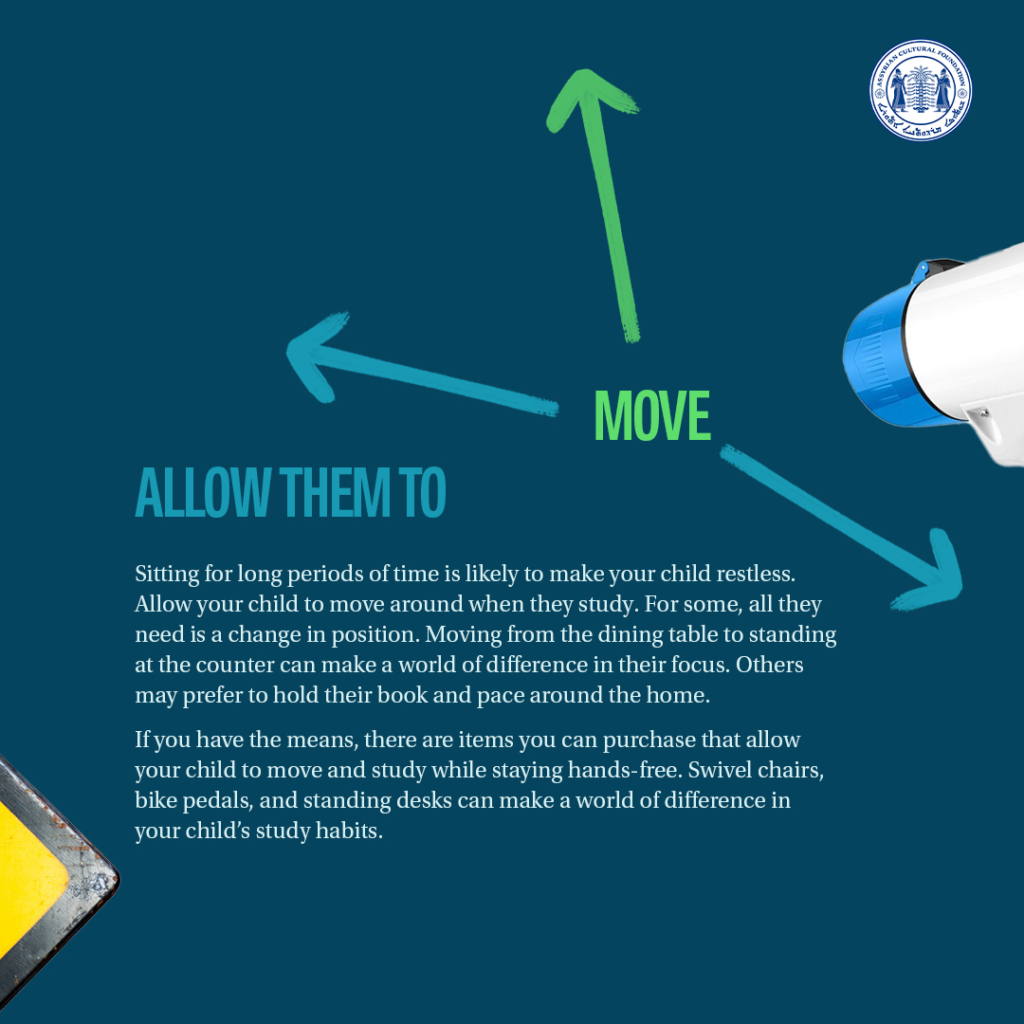
Allow them to move
Sitting for long periods of time is likely to make your child restless. Allow your child to move around when they study. For some, all they need is a change in position. Moving from the dining table to standing at the counter can make a world of difference in their focus. Others may prefer to hold their book and pace around the home.
If you have the means, there are items you can purchase that allow your child to move and study while staying hands-free. Swivel chairs, bike pedals, and standing desks can make a world of difference in your child’s study habits.
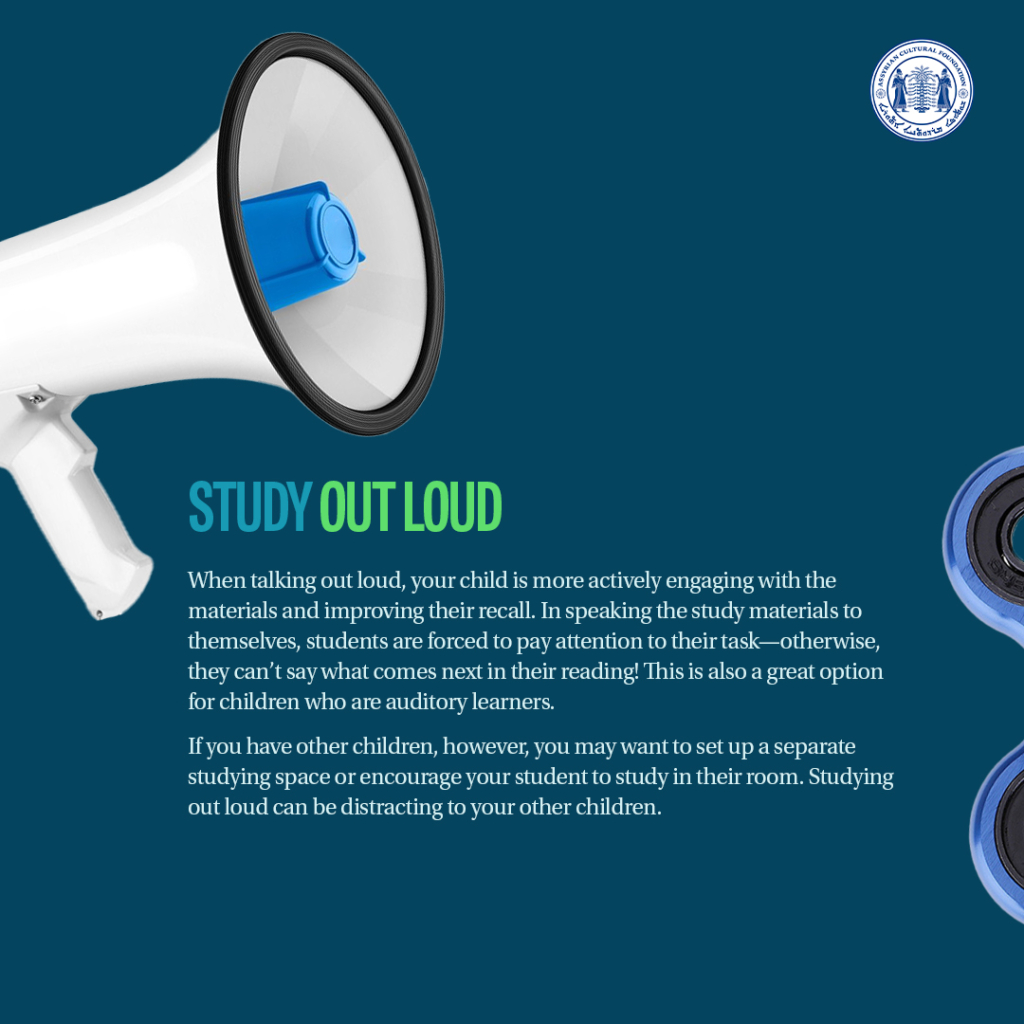
Study out loud
When talking out loud, your child is more actively engaging with the materials and improving their recall. In speaking the study materials to themselves, students are forced to pay attention to their task—otherwise, they can’t say what comes next in their reading! This is also a great option for children who are auditory learners.
If you have other children, however, you may want to set up a separate studying space or encourage your student to study in their room. Studying out loud can be distracting to your other children.
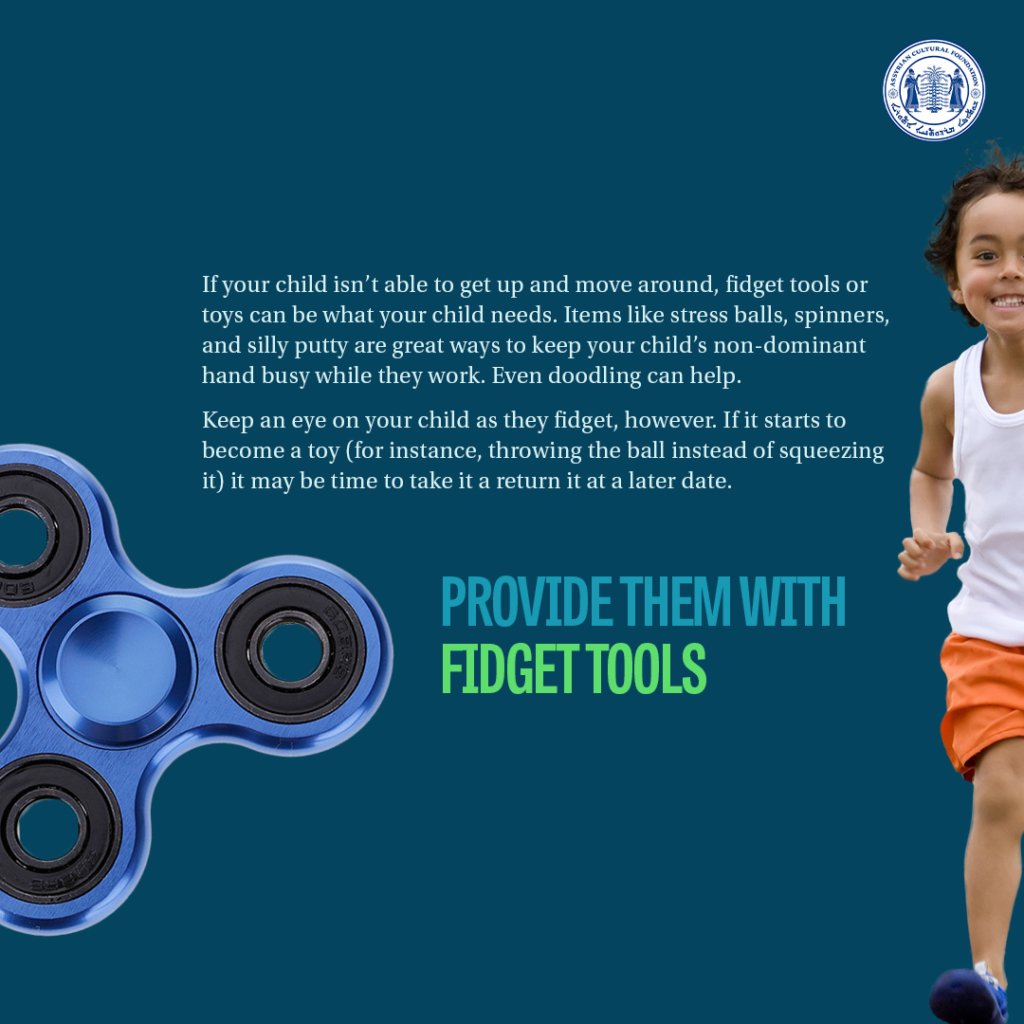
Provide them with fidget tools
If your child isn’t able to get up and move around, fidget tools or toys can be what your child needs. Items like stress balls, spinners, and silly putty are great ways to keep your child’s non-dominant hand busy while they work. Even doodling can help.
Keep an eye on your child as they fidget, however. If it starts to become a toy (for instance, throwing the ball instead of squeezing it) it may be time to take it a return it at a later date.
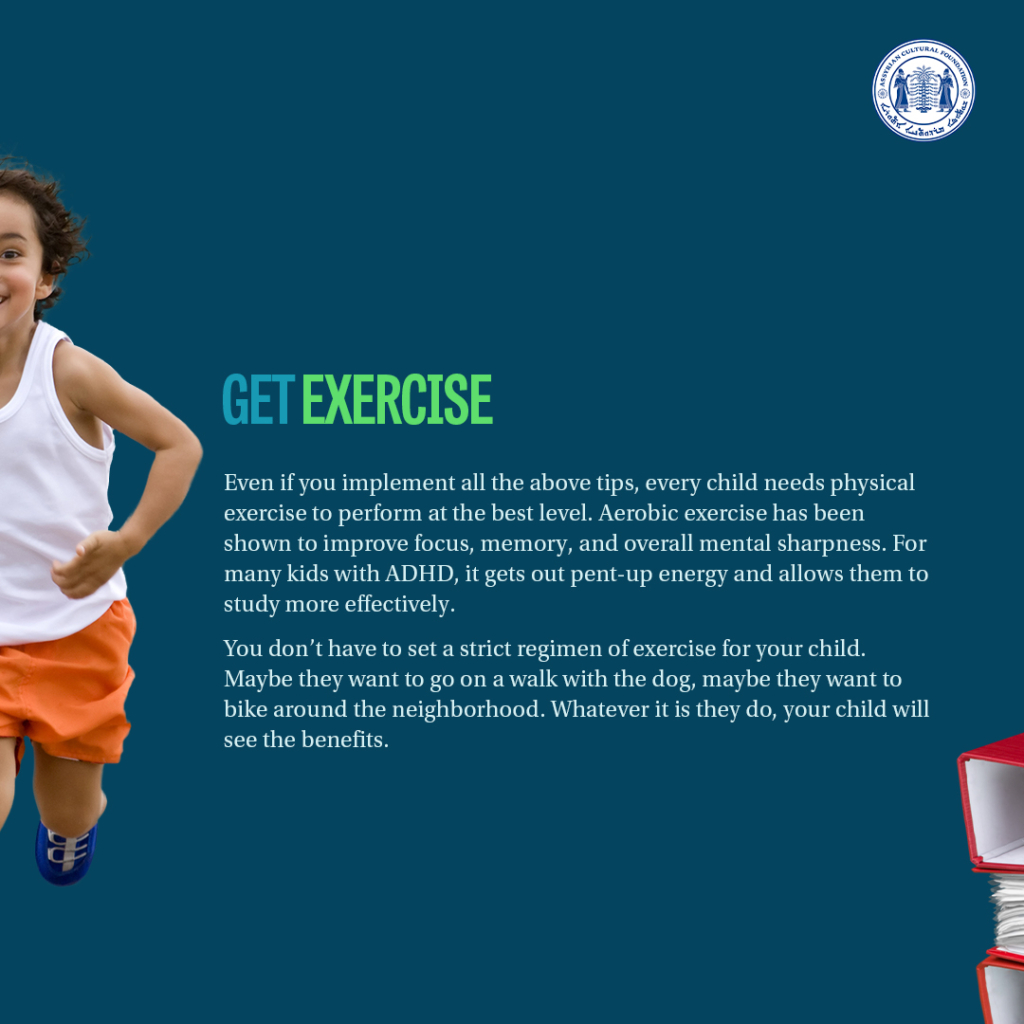
Get exercise
Even if you implement all the above tips, every child needs physical exercise to perform at the best level. Aerobic exercise has been shown to improve focus, memory, and overall mental sharpness. For many kids with ADHD, it gets out pent-up energy and allows them to study more effectively.
You don’t have to set a strict regimen of exercise for your child. Maybe they want to go on a walk with the dog, maybe they want to bike around the neighborhood. Whatever it is they do, your child will see the benefits.
![]()
Create an organized binder/folder system
For some children, half of the battle is handing in the homework in the first place. Children with ADHD are more likely to misplace their homework, which can cause issues in the classroom. Make sure everything has a place by creating an organized system of binders or folders.
Reserve one side for items that need to be completed, and another side for what has been done. Go a step further by coordinating these assignments by color—for instance, English assignments go in a blue folder, while math assignments go in a red folder.
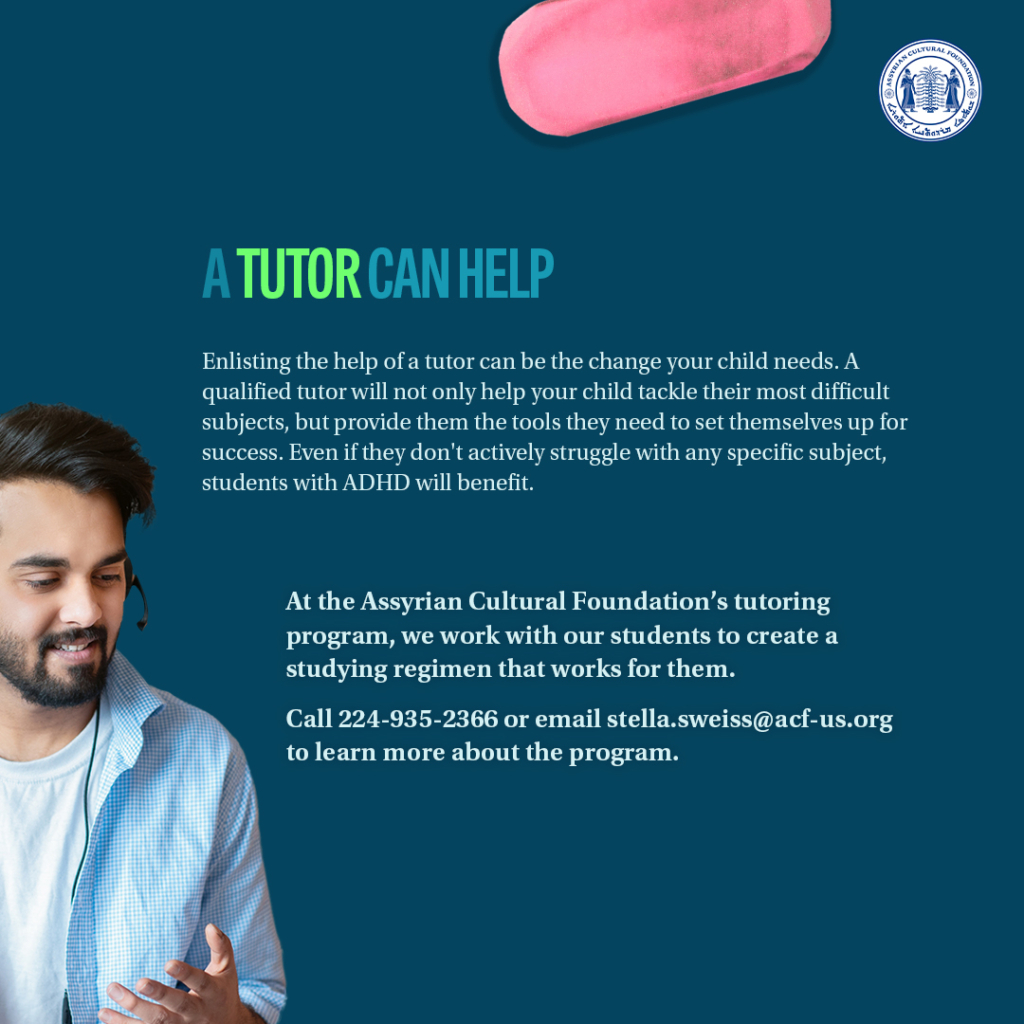
A tutor can help
Enlisting the help of a tutor can be the change your child needs. A qualified tutor will not only help your child tackle their most difficult subjects, but provide them the tools they need to set themselves up for success. Even if they don’t actively struggle with any specific subject, students with ADHD will benefit.
At the Assyrian Cultural Foundation’s tutoring program, we work with our students to create a studying regimen that works for them. Call 224-935-2366 or email stella.sweiss@acf-us.org to learn more about the program.
